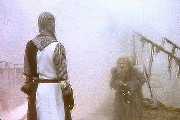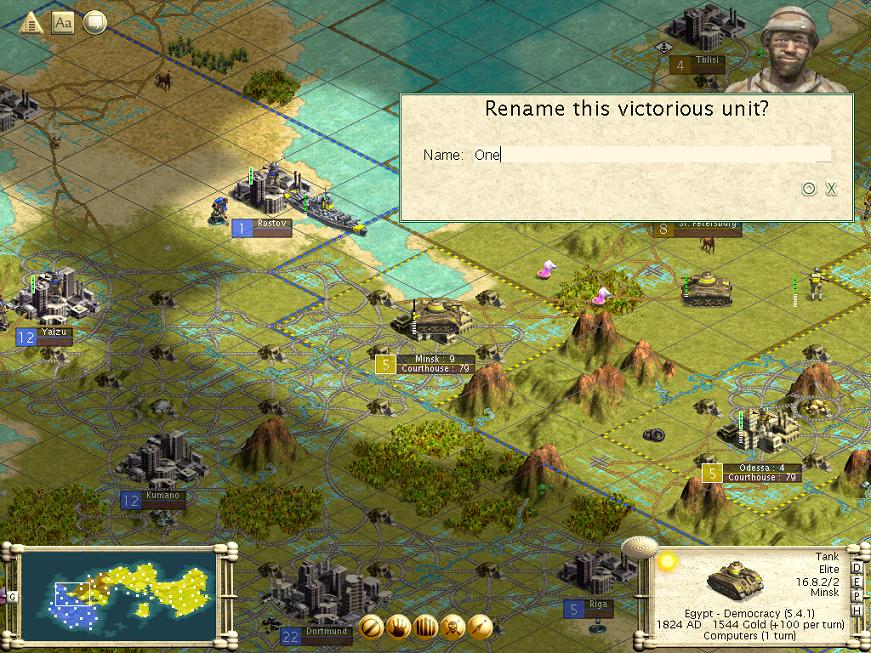Coletite was the first to pick up on the fact that a victorious army will allow you to build the Military Academy, and he (correctly) notes that an Army costs about as much as a small wonder. He also recognizes that for a spaceship win you need "lots of productive cities..."
This is going to sound like an odd question, but how might a Mounted Warrior Army help you win the Space Race?

@Team: Please do not infer that I think building the FP with your MGL is not a strong move; I think that argument is compelling. I simply want you guys to understand
everything you are giving up... and there is one thing I see that you are not considering. (If you consider it and discount/disregard it, that's fine... as long as you consider it.)
I'll make this easier for you:
What is the cost of an Army compared to the most expensive Spaceship Part, and how can you use this to advantage?
----------
This next part is mostly for GJ...or anyone who loves stats....
@GJ: I would very much like to see your spreadsheet, but I have some cautionary notes.
First - make sure you account for the combat calculator basics: The odds of getting a MGL from an elite unit are 1:16
when the elite wins. An elite MW versus a veteran spear (fortified in a town with no other defensive bonuses) will win 69.2% of the time. Thus your overall odds of getting a MGL leader from that
particular combat are something like 4.3%...
These odds would imply that you could expect a MGL from roughly 23 Elite MWs... but...this represents the "central tendency", and is by no means iron-clad. If you were to press 46 Elite MWs into combat against Vet spears, you could expect 2 MGLs. You may very well get more, or you may very well get none. As you repeat the events more and more times the outcomes will resemble "regression towards the mean" and you will observe a
distribution of outcomes that resembles the odds...
...but just as you cannot bet the bank on odds that reflect "central tendencies", you must also be careful of the "Random Walk". The "killer spearman" smiley is not merely a CivIII "urban legend". If you attack enough spears with enough tanks, you will eventually lose a tank to a spearman; I have.
Some more food for thought... (and why a model based on binomial theorem may not quite work...)
The RNG in CivIII seems to do it's level best to keep each probability event "isolated"...
Consider gambling, the probability of someone rolling a "7" on a craps table seven times in a row is something like .00035 (or three one-hundredths of a percent). Slim odds. Ususally the chips start flowing towards the "Don't Pass" on about the 3rd or 4th roll. The fallacy here (as with most gamblers who claim to have a "system") is that each event (roll of the dice) is an isolated, random event.
In other words, the odds of that
next roll being a 7 are still 16.667%, no mater how many "Sevens" preceded that roll. (Having said that, I recognize that the RNG in any computer program cannot be purely random....)
Edit - I must have confused Binomial Theorem with something I tinkered with using either a causal model or related events (time-series analysis). Binomial Theorem should be able to describe isolated "random" events...I've been out of school for a few years, and I'm a little rusty on some of this stuff...

 Good discussion, gang
Good discussion, gang 







